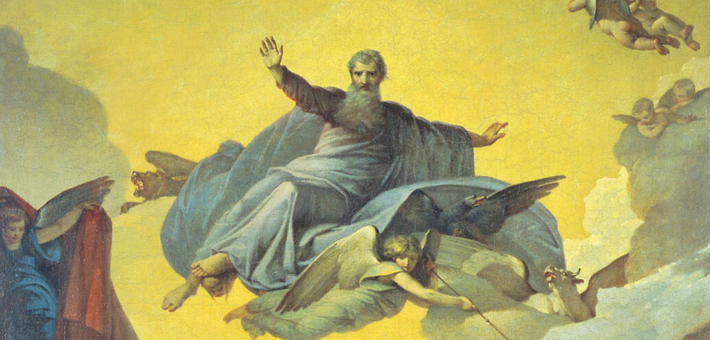Commentary on Ezekiel 33:7-11
The pericope reminds Ezekiel of his call to be a watchman over the house of Israel. His prophetic task is to call Israel to repentance when she falls short of her covenantal responsibilities before God. While this task involves declaring God’s judgment for Israel’s sins, it also means inviting Israel to repent in light of the lovingkindness of God. In Ezekiel, divine justice is restorative not punitive. It is to remove the cancer eating at the nation and bring her back into health so that she can embody the holiness of God in her life and witness. Without this holiness, there can be no justice or righteousness.
God calls leaders to guard the deposit of faith so that the church may remain holy before God in her proclamation of the gospel. In the light of Pentecost, the prophetic task has been extended to the whole church but manifests itself particularly through the ministers who serve the body. While the prophetic task is to call the church to holiness in light of the dangers of capitulation to the idols of the age, this task always occurs in the context of the lavish grace of God that calls all to repentance.
The passage speaks to the prophetic call to guard the church and the message of costly grace without which the people of God cannot bear witness to the one who bids the world to come and die. In short, the church must guard the grace of God so that it is not cheapened.
The call to guard
The prophetic task flows from the greater vision of God as the holy one of Israel who calls the nations to follow his way of holiness. The pericope begins with God’s reminder to Ezekiel that God has called him to be a watchman (Ezekiel 33:7). The language of “watchman” takes Ezekiel back to the original call in the context of his visionary experience of God’s mobile throne (Ezekiel 1-3). Ezekiel’s call comes from his vision of the nature of God as holy and just and one who calls all to follow Him. This is the vision of faith and its movement to sight. Only as we see God can we then engage in the task of proclaiming this God to others.
The prophetic task involves critique. Ezekiel must remind the wicked of how far they have fallen from the covenant and the consequences of their wickedness. This is what it means to guard and watch over the people of God. Normally, a watchman guards against external forces. Ironically, however, the enemy is within the nation. It is the wickedness of her own life that calls down judgment. Ezekiel must warn the wicked (Ezekiel 33:8) lest he be judged for failing to heed his prophetic vocation. The prophetic task of critique is not an option. The church must constantly remind herself of how she falls short of the gospel. Before she bears witness to the world, she must examine herself to see where she has failed God.
The call to grace
Divine judgment comes in the context of grace. Through the prophet Ezekiel, God declares that He takes no pleasure in the death of the wicked (Ezekiel 33:11). This declaration points forward to later chapters in which God will breathe life back into the nation through the Spirit (Ezekiel 37). God longs to give and restore. It is a vivid reminder that God’s love is the constant flow of grace and mercy toward creation. God’s delight is to restore to wholeness, not to punish. In this sense, Ezekiel provides the negative counter to the positive proclamation that God is love (1 John 4:16).
Divine judgment restores to life. The contrast in 33:11 is between death and life. This harkens back to the two paths God had set before Israel in Deuteronomy (Deuteronomy 30:15-20). God is the God of the living who brings life even to the darkest places. God’s justice does not destroy life but heals and delivers. It is life-giving. For this reason, there can be no final contradiction between justice and love. Justice is merely one expression of God’s love. It is God’s refusal to allow death to win and to allow his people to wallow in their own destructive ways.
The call to turn
The call to grace involves a call to turn away from wickedness and toward holiness. The final appeal of God in this passage is to turn (Ezekiel 33:11). There is no holiness without justice and no happiness without holiness. This is because holiness is about the proper ordering of all things in the self and in the world. We normally think of justice as rendering to others their due. Justice is about rights. Yet, scripture sees justice more in terms of blessedness, which is the biblical way of orienting us toward wholeness and flourishing. To be just is to bring God’s kingdom—God’s own orderly reign—to all of life. The gospel is the good news that God’s kingdom is here to facilitate a journey toward a wholeness and holiness that leads to our flourishing. To be healed is to have God re-order our desires so that they no longer take us down destructive paths.
The first step toward this healing is repentance. Dietrich Bonhoeffer warned the church in Germany that grace was always costly. Cheap grace is grace without repentance and discipleship. Costly grace involves the call to come to Christ and die. Yet, this death is to the very behaviors and beliefs that are destroying us. The path to life involves laying down the sins that so easily entangle.
Repentance is the radical decision to turn away from the destructive forces of death and enter the path of life. It is by no means easy, any more than becoming a great musician or athlete is easy. It involves constantly cutting ourselves off from behaviors that do not promote our spiritual health and well-being. Yet, the end of this costly grace is the life of blessedness in which we become all that God intended us to be.


September 10, 2023